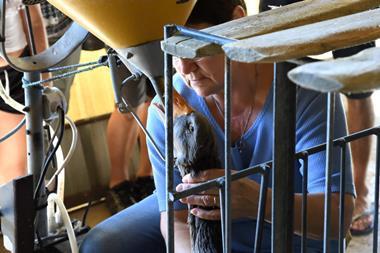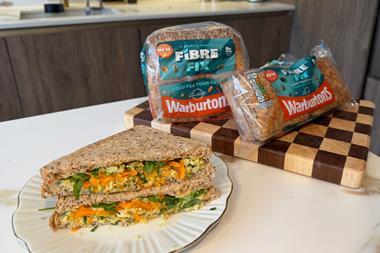It all happened so fast even Nadine Dorries couldn’t keep up. But for now it’s settled. Sort of. Nadhim Zahawi is the new Chancellor. Steve Barclay is the new health secretary. For now, at least.
In any normal times such dramatic change at the top of government would have huge implications for the thousands of food and drink businesses across the country. Along with Defra (and these days the Home Office), the Exchequer and the health department hold more influence over the food and drink industry than any other.
We may have looked at Zahawi and Barclay’s backgrounds, their politics, their potential priorities in their new positions and how it could influence the world of food and drink. What it might mean for food policies such as taxes on sugar and salt, plastic regulations, or the future of farming. Who might be the winners or losers of this new personnel, we may have asked.
In the current turmoil, however, we can forget all that. With the number of resignations across Cabinet now at [insert latest] in the past 24 hours and the majority of Conservative voters thinking Johnson should resign, according to a snap YouGov poll last night, it is now even more widely seen as a question of when, not if, the prime minister will go.
So what happens in the meantime? Not much, you’d have to guess. Many across the industry were already frustrated at the government’s inertia on inflation, the rising cost of living, obesity, and more, and it’s difficult to see how a government now focused on simply making it through each day is suddenly going to offer any more strategic direction in any one of these policy areas.
The confusion is already being felt. A group of industry leaders had what they felt was a “reasonably constructive” meeting with junior Defra minister Jo Churchill today on upcoming EPR legislation, only for her to resign 10 minutes later.
The best outcome now for the food industry, and arguably for the country at large, is that Johnson’s demise is quick. A drowning Johnson administration making policy decisions on the fly based on short-term survival instincts seems unlikely to be the best scenario if issues like the cost of living crisis are to get any chance of well-considered attention. Who knows who his successor may be, but few industry sources are touting the ‘better the devil you know’ line today.
If, on the other hand, Johnson clings on through the summer, the obvious temptation will be to launch policies that convince Tory rebels that he still has the political clout to win a general election. Confrontation with the EU could be stepped up and in turn raise the risk of a trade war, the health department’s obesity strategy has already been watered down in recent weeks and seems unlikely to thrive in the current situation. At best, some businesses may hope for one or two tax easements, but the political instability accompanying it means that even these would be tarnished by a lack of certainty.
And it is the uncertainty, ultimately, that is the bottom line to this whole sorry political saga. The uncertainty that stifles private investment, stifles government decision making, and leaves businesses and the public to muddle their way through what is fast becoming a full-blown economic crisis. This week’s events leave the food industry, like the rest of the country, simply more rudderless than ever.




















No comments yet